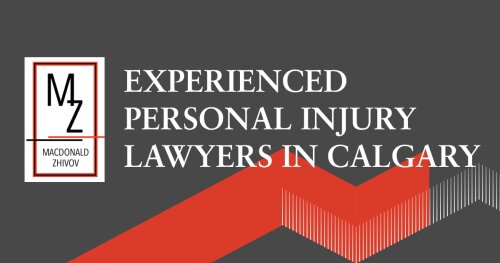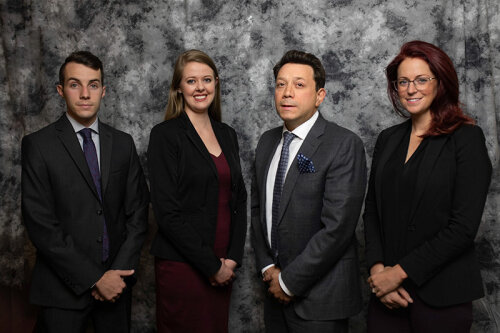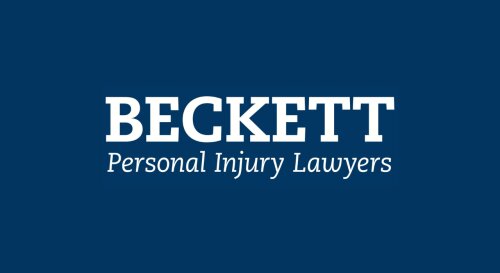Best Defamation Lawyers in Canada
Share your needs with us, get contacted by law firms.
Free. Takes 2 min.
Or refine your search by selecting a city:
List of the best lawyers in Canada
About Defamation Law in Canada
Defamation in Canada refers to the act of making false statements about someone that harm their reputation. It can be either libel (written defamation) or slander (spoken defamation). Defamation laws aim to protect individuals and organizations from false and damaging statements.
Why You May Need a Lawyer
You may need a lawyer for defamation cases if someone has made false statements about you that have caused harm to your reputation, career, or relationships. A lawyer can help you navigate the legal process and seek compensation for damages.
Local Laws Overview
In Canada, defamation laws are governed by both federal and provincial statutes. The key aspects of defamation laws in Canada include proving that the statement is false, determining if it was made with malice or reckless disregard for the truth, and considering defenses such as truth, fair comment, and privilege.
Frequently Asked Questions
1. What do I need to prove in a defamation case?
In Canada, to prove defamation, you must show that a false statement was made about you, that it was communicated to a third party, and that it caused harm to your reputation.
2. Can I sue someone for defamation over social media posts?
Yes, you can sue someone for defamation over social media posts if the statements are false and have caused harm to your reputation.
3. What defenses can be raised in a defamation case?
Defenses in a defamation case may include truth, fair comment, absolute privilege, qualified privilege, and responsible communication on matters of public interest.
4. How long do I have to file a defamation lawsuit in Canada?
In Canada, the limitation period for filing a defamation lawsuit is typically 2 years from the date the defamatory statement was made.
5. Can I be sued for defamation if I share someone else's defamatory statement?
Yes, you can be held liable for defamation if you share someone else's defamatory statement, especially if you knew or should have known that it was false.
6. What damages can I claim in a defamation case?
In a defamation case, you may be able to claim damages for loss of reputation, emotional distress, loss of income, and punitive damages.
7. Can I settle a defamation case out of court?
Yes, defamation cases can be settled out of court through negotiations or mediation to avoid the time and expense of a trial.
8. Can a public figure sue for defamation in Canada?
Yes, public figures can sue for defamation in Canada, but they may face a higher burden of proof due to their status in the public eye.
9. Is truth always a defense in a defamation case?
Truth is generally a complete defense in a defamation case, as the statement must be proven false to constitute defamation.
10. Do I need evidence to support my defamation claim?
Yes, evidence such as witness statements, documents, and other proof of the defamatory statement and its impact on your reputation will be important in supporting your defamation claim.
Additional Resources
For more information on defamation laws in Canada, you can consult legal resources such as the Canadian Bar Association, provincial law societies, and local legal aid clinics.
Next Steps
If you believe you have been defamed and are considering legal action, it is advisable to consult with a lawyer who specializes in defamation law. They can assess your case, advise you on the best course of action, and guide you through the legal process.
Lawzana helps you find the best lawyers and law firms in Canada through a curated and pre-screened list of qualified legal professionals. Our platform offers rankings and detailed profiles of attorneys and law firms, allowing you to compare based on practice areas, including Defamation, experience, and client feedback.
Each profile includes a description of the firm's areas of practice, client reviews, team members and partners, year of establishment, spoken languages, office locations, contact information, social media presence, and any published articles or resources. Most firms on our platform speak English and are experienced in both local and international legal matters.
Get a quote from top-rated law firms in Canada — quickly, securely, and without unnecessary hassle.
Disclaimer:
The information provided on this page is for general informational purposes only and does not constitute legal advice. While we strive to ensure the accuracy and relevance of the content, legal information may change over time, and interpretations of the law can vary. You should always consult with a qualified legal professional for advice specific to your situation.
We disclaim all liability for actions taken or not taken based on the content of this page. If you believe any information is incorrect or outdated, please contact us, and we will review and update it where appropriate.
Browse defamation law firms by city in Canada
Refine your search by selecting a city.















